ENGLISH VERSION BELOW
Gegen Ende der 80er Jahre fing die Rave-Bewegung in Großbritannien Feuer. Was zuvor in Detroit, New York und Chicago begann, schwappte nun rüber auf die Insel und House und Techno traf Europa wie ein Schlag. In Manchester waren dafür unter anderem 808 State verantwortlich. Graham Massey, A Guy Called Gerald und Martin Price veröffentlichten ihr Debütalbum Newbuild im Jahre 1988 und brachten damit den Acid House in den grauen Alltag vieler Jugendlicher. Tracks wie 'Pacific', 'In Yer Face' oder 'Cubik' sind mittlerweile Kulturgut in England und gehören zum festen Repertoire der House- und Techno-Szene. Jetzt melden sich 808 State nach 17 Jahren mit ihrem neuen Studio Album 'Transmission Suite' (hier geht es zur Review) zurück. Wir trafen Graham in Berlin, um über die neue LP, seine Obsession mit Drums und Rhythmus, Jazz, und natürlich die TR-808 zu sprechen.
Nach 17 Jahren Pause habt ihr jetzt ein neues Album veröffentlicht. Warum hat es so lange gedauert?
Wir sind jetzt seit 30 Jahren dabei. Es gab eine Art natürliche Pause für uns, weil wir auch von Studio zu Studio gezogen sind. Wir haben 2002 oder 2003 unser Studio in Manchester verloren, deswegen kamen wir nicht mehr so oft zusammen. Aber wir haben in der gesamten Zeit auch Konzerte gespielt und diese Seite von 808 State am Laufen gehalten. Nebenbei hatten wir noch einige weitere Projekte innerhalb dieser 17 Jahre, zum Beispiel haben wir unseren gesamten Katalog remastered, das war eine Menge Arbeit. Deswegen schaue ich nicht zurück und sage: „Oh, da ist eine 17-jährige Lücke“. Es überrascht mich sogar, wenn Leute das sagen, denn ich hatte ja täglich mit 808 State zu tun. Vor ein paar Jahren war ich für das Opening des Manchester International Festivals verantwortlich. Das nannte sich „What Is the City but the People“, wurde von Jeremy Deller entworfen und ich war für die Musik verantwortlich. Für dieses Projekt habe ich einen Raum in dem alten Komplex der Grenada TV-Station gemietet. Das ist mit der Zeit eine Art Musikdorf geworden, weil dort sehr viele verschiedene Studios waren. Davor habe ich die meiste Zeit in meinem Home Studio gearbeitet, wo es ziemlich schwer ist, dieses Gefühl von „hey, party!“ zu bekommen. Das neue Studio war also eine gute Gelegenheit, wieder mit anderen Musikern zusammen zu kommen und diese Energie war auch der Startpunkt für das neue Album.
Was hat sich an eurem Produktionsstil und auch an eurer Wahrnehmung von Musik geändert in den letzten 17 oder 30 Jahren?
Ich würde sagen, dass es immer wieder Zeiten gibt, in denen man reflektiert, was man an der alten Version von 808 State mag, jedes Album fühlt sich dabei für mich wie eine Ära an. Es gab die Zeit, aus technologischer Sicht betrachtet, als all die Sequences noch nicht im Computer lebten, sondern außerhalb davon und vor allem eigenständig. Wir werden oft etwas nostalgisch, wenn wir daran denken und fangen dann an, uns mit altem Equipment zu beschäftigen. Heutzutage sind wir aber nicht die einzigen, die das machen. Viele Firmen sind da auch an Bord und dadurch hat sich für uns ein Dialog mit Firmen wie z. B. Roland ergeben. Ich und A Guy Called Gerald waren direkt an der Entwicklung von neuem Equipment wie der Roland Boutique Reihe beteiligt und gaben Feedback, was wir an den neuen Sachen mögen und was uns bei den alten besser gefällt. Was jetzt neu ist, ist die Art alles miteinander zu verbinden und zu synchronisieren. Man bekommt also sozusagen das beste aus beiden Welten, dadurch ist man sehr flexibel geworden. Es ist mehr als beeindruckend, was man mit einem Laptop anstellen kann im Vergleich zu dem Stress, den wir früher hatten. Wenn ich an die Zeit rund um 1993 zurückdenke, die ich die schwierigen Jahre der Technologie nenne, dann gab es da dieses große Versprechen durch neue Technologie, aber nichts davon funktionierte richtig. Man zweifelte immer etwas daran, ob alles wirklich richtig klappt – und zu einem gewissen Punkt konnte man das in der Musik hören. Dieses Gefühl haben wir versucht in unserem neuen Album zu adressieren. Unser letztes Album basierte viel auf Pro Tools, dort haben wir mit etwas experimentiert, was ich „unlock from the grid“ nenne. Musik, die nicht so sehr an einen bestimmten Takt und Tempo gebunden ist, dadurch entstand eine eher impressionistische Sound-Landschaft. Auf dem neuen Album ist dagegen wieder sehr direkte und soziale Musik.
Ihr seid also wieder zu einem klaren Takt und Rhythmus zurückgekehrt?
Na ja, zumindest zu einem, den ich mag (lacht). Denn eigentlich hasse ich es, wenn es zu geradlinig ist. Ich liebe echte Drummer und alle möglichen Arten der Musik. Echte Drummer zu studieren aber selbst Musik zu programmieren ist ein sehr interessantes Feld, da erkennt man, welche Möglichkeiten man beim Programmieren hat, die ein Drummer nicht spielen kann. In den letzten 17 Jahren hatten wir unter anderem eine Band namens Tool Shed. Dort ging es darum, Musik zu programmieren und dann auf echte Musiker zu übertragen. Das war eines unserer großen Forschungsfelder. Dann haben wir noch viel mit ungeraden und krummen Taktarten experimentiert, das haben wir mit 808 State eigentlich immer gemacht, nur ist es jetzt noch deutlich normaler für uns geworden und fühlt sich auch natürlicher an.
Sie sehen gerade einen Platzhalterinhalt von Youtube. Um auf den eigentlichen Inhalt zuzugreifen, klicken Sie auf die Schaltfläche unten. Bitte beachten Sie, dass dabei Daten an Drittanbieter weitergegeben werden.
In den Medien werdet ihr immer als die Pioniere des Acid House dargestellt.
Ich weiß wirklich nicht, was das bedeuten soll (lacht). Aber ja, das haftet uns irgendwie an. Wir haben vielleicht früh damit angefangen, aber für mich war Acid House schon vorher da. Ich will da den Leuten aus Chicago nichts wegnehmen: Wir haben versucht, diesen Stil nachzumachen und es wenn man ehrlich ist, haben wir es auch einfach falsch gemacht. Aber wir hatten jemanden wie John Peele, ein DJ bei BBC in Manchester, der das als neue Musik angesehen hat und deswegen liefen wir dann im Radio. Aber eigentlich ist unsere Musik völlig out of key und es war unmöglich, sie zu mixen, weil sie aus Tape Edits bestand.
Aber fühlst du trotzdem eine Art Bürde, weil 808 State so ein großer Name ist und jeder ein innovatives Album erwartet?
Ja … wobei: Ich würde es nicht Bürde nennen. Es ist eher eine der angenehmeren Erwartungshaltungen, mit der man arbeiten kann, da sie dir auch sehr viele Freiheiten gibt.
Um noch einmal zu Drummern zurückzukommen: Glaubst du, dass der Zugang zu eurer Musik für viele Menschen leichter ist, weil ihr viele "echte" Instrumente wie Drums oder Saxophon einbaut?
Hmm… vielleicht. Aber das war immer eine Debatte innerhalb der Band. Ich glaube, vieles davon passierte, weil der frustrierte Musiker in mir irgendwie raus wollte. Vor allem aber fing das damit an, dass wir viel und vor allem in Amerika tourten. Irgendwann beginnt dann das Show Business.
Ihr mögt es also, eine Show zu gestalten?
Ja, klar. Es geht da um Energie und den Transfer dieser Energie durch Musik. Der Großteil dieser Energie kommt von unseren Anfängen. Zu Beginn hatten wir unser Equipment immer hinten beim Mischpult stehen, wie es für uns bei Raves üblich war. Irgendwann fingen wir als Support für Bands in Manchester an. Die mochten uns immer, weil wir keinen Platz auf der Bühne beansprucht haben. Für die Leute war es aber immer sehr seltsam. In relativ kurzer Zeit, als wir dann die ersten Alben in den Charts hatten, spielten wir auf einmal in Hallen mit 10.000 Plätzen, dafür musst du dann natürlich eine Show konzipieren. Oft endete es damit, dass wird bei dem Versuch, eine Band zu sein, ziemlich unbeholfen aussahen.
Wenn ich eure Musik höre, fühlt sie sich immer sehr optimistisch an.
Das stimmt. Aber das ist für mich auch in dem melodischen Futurismus vom Detroit Techno zu hören. Natürlich hat Kraftwerk dafür eine großartige Blaupause entworfen, aber uns war direkt klar, dass wir niemals wie sie sein können. Die waren einfach zu perfekt. Aber da waren immer viele kleine futuristische Elemente in der Musik, die wir gehört haben, als wir aufwuchsen. Vor allem, wenn es um Melodien geht. Fast schon so wie bei Easy Listening Musik, die ja definitiv ein Teil von 808 State ist. Wahrscheinlich, weil ich in den 60ern aufgewachsen bin und meine ersten musikalischen Eindrücke im Kino hatte. In den Zwischenspielen und Pausen spielten sie da immer The Shadows, die diesen plucky Bass Sound mit den einfachen Melodien darüber hatten. Zu Hause konnte man ja nie wirklich Bass hören. Es ist ein sehr magischer Moment, wenn man das erste mal Bässe hört und in seiner Brust spürt. Ich erinnere mich daran, dass ich mit meinem Vater zur Arbeit ging, um dort auf der Jukebox Telstar von The Tornados zu hören. Diesen Vibe von Easy Listening und später Space-Age Pop hab ich definitiv bei 808 State eingebracht.
Glaubst du, dass eure Musik besonders durch diesen Vibe so warm klingt? Besonders im Vergleich mit Kraftwerk klingen eure Sounds warm, während deren Kühle auch heute noch teilweise befremdlich für mich klingt.
Wahrscheinlich ist das so, weil wir deutlich chaotischer sind.
Ihr habt eure Band nach der ikonischen TR-808 benannt. Ist es nicht interessant, dass die zu eurer Zeit als billig galt, heute aber als eine Essenz der House- und Techno-Musik verehrt wird?
Teilweise schon, ja. Irgendwie sind wir aber wahrscheinlich auch mit Schuld daran, weil wir immer Listen von unserem Equipment auf unsere Cover gedruckt haben. Wir sind also Teil dieses Technik- oder Studio-Porn. Ich habe mich davon aber selbst früh anstecken lassen, als ich auf Herbie Hancock Platten die ganzen Keyboards gesehen habe. Bands wie Tangerine Dream haben das auch sehr früh gemacht und dort waren haufenweise Synthesizer zu sehen, was alles sehr mysteriös war. Wenn man diese Sounds gehört hat, dachte man sich „wow, damit kann man ja wirklich alles machen“. Ich glaube diese romantische Verklärung von Technologie war also immer irgendwie da.
Die TR-808 wurde aber irgendwie zum Symbol der Demokratisierung von Musikproduktion. Man musste nicht mehr ein Musikinstrument beherrschen, um Musik zu machen.
Das stimmt. Ich glaube, wir waren auch irgendwie die erste Welle davon. Du weißt schon, Idioten mit Synthesizern. Das ist seltsam, denn die ganze Synthie-Musik, die ich früher geliebt habe, kam von absoluten Profis wie Stevie Wonder. Aber dann kamen irgendwann Sequenzer und DAWs ...
... und Sampling?!
Und Sampling, ganz klar! Sampling ist eine wunderbare Sache und hat so viele Möglichkeiten eröffnet. Plötzlich konnte man Musik machen, die nach allem klingen kann. Tracks, die nach den 50ern, 70ern oder sogar nach dem Jahr 2000 klingen, obwohl es 1988 war. Dieses Sprengen der Grenzen war extrem wichtig. Wenn du vorher nicht mal den Takt halten konntest und das auf einmal möglich ist und du sogar noch Swing addieren kannst, dann ist das ein ganz neues Level. Und das kann nun jeder. Wobei ich denke, dass man einen musikalischen Background braucht, um nicht direkt von der ganzen Technologie gelangweilt zu sein. Man kann schnell das Interesse verlieren und nur an der Oberfläche kratzen. Dadurch kann man zwar Tracks machen, die ungefähr so klingen, wie das, was im Radio läuft, aber das ist nicht Kunst. Ich bin mir sicher, dass die meisten Leute dachten, wir seien bescheuert als wir angefangen haben. Aber man kann den emotionalen Einfluss der vielen Tracks und Alben aus dieser Zeit nicht verleugnen. Mit dieser Musik verbinden viele Menschen mittlerweile ganze Lebensabschnitte und große Ereignisse, Hochzeiten, Geburten, Beerdigungen und so weiter. Und es gibt keinerlei Grund für niemanden, nicht auch Musik machen zu können. Es ist immer nur eine Frage von Wille, den Umständen und ob deine Musik den Nerv der Zeit trifft. Ich bin mir sicher, dass genau das jeden Tag irgendwo passiert.
Sie sehen gerade einen Platzhalterinhalt von Youtube. Um auf den eigentlichen Inhalt zuzugreifen, klicken Sie auf die Schaltfläche unten. Bitte beachten Sie, dass dabei Daten an Drittanbieter weitergegeben werden.
Das Gute ist, dass es mittlerweile immer erschwinglicher wird. Was denkst du zum Beispiel von Behringers 808-Klon?
Ein paar der daran beteiligten Techniker arbeiten in Manchester, wir haben also früh einen davon zum Test bekommen. Das einzig Negative, was ich sagen kann, ist die Größe. Die sind einfach zu groß, vor allem weil es heutzutage wichtig ist, wie viel Equipment du für deine Tour in einen EasyJet-Flug bekommst. Davon abgesehen klingen sie aber super und ich bin auch niemand, der für eine originale 808 3000 Euro ausgeben würde. Auf unserem neuen Album haben wir die TR-8 von Roland benutzt und ich habe auch eine TR-8S. Es ist großartig, was man mit dem neuen Equipment machen kann, was früher nicht ging. Bis zu einem gewissen Grad bin ich also Roland doch immer treu geblieben.
Warum, glaubst du, geben Leute so viel Geld für ein Original aus?
Vermutlich wegen des Vermächtnisses und auch aufgrund einer Art Romantik.
Es ist also nicht der Sound?
Ich glaube nicht, dass dieses Argument noch immer zählt. Es ist natürlich toll, wenn man sich sowas leisten kann, aber wie viele Leute können das nicht und fühlen sich deswegen schlecht?! Denen kann ich nur sagen, dass sie das nicht müssen, weil auch die neuen Sachen sehr gut klingen. Bei den alten 808s war jedes Produkt unterschiedlich und wenn man Pech hatte, bekam man eine schlechte Ausführung. Ich weiß noch, dass Geralds Bass Drum immer entweder zu kurz oder zu lang war; das konnte man nie richtig einstellen. Eigentlich haben wir aber eh immer die TR-909 benutzt. Das mag seltsam klingen, weil wir uns ja 808 State genannt haben.
Als letzte Frage: Hast du 808 State als einen Versuch angesehen, eine Jazz-Band zu sein? In Interviews sprichst du häufig über Jazz und wie sehr es dich inspiriert.
(Lacht) Nein. Eigentlich hasse ich auch das Wort Jazz. Als ich aufgewachsen bin, habe ich viel die 70er-Jahre-Platten von Miles Davis gehört. Der würde das auch nie Jazz nennen. Es ist einfach Musik, die sehr viel ausprobiert und erforscht. Einer meiner größten Momente war, als ich Sun Ra live sah. Er und seine Band spielten 1930er-Bar-Room-Jazz, der sehr stampfend und laut ist, fast schon punkig. Im nächsten Moment wechselten sie dann in einen komplett freien Strom an elektronischen Sounds oder afrikanische Trommelparts. Das ist eine überwältigende Erfahrung verschiedenster musikalischer Formen und Ausdrücke. Es hat mich immer beeindruckt und beeinflusst, dass eine Band so komplex sein kann.
ENGLISH VERSION
At the end of the 80s, the Rave Movement startet to blow up in the UK. What began in Detroit, Chicago and New York came to the Island and House and Techno started a fire in Europe. The ones who stoke that flame in Manchester was 808 State. Graham Massey, A Guy Called Gerald and Martin Price released their debut album Newbuild in 1988 and brought Acid House into the grey everyday life of the Margret Thatcher generation. Tracks like 'Pacific', 'In Yer Face' or 'Cubik' became cultural assets of the UK and belong to the standard repertoire of the House and Techno scene. Now after 17 years, 808 State is back with their new studio album Transmission Suite. We met Graham Massey in Berlin and talked to him about the new record, his obsession with drummers, jazz and of course the TR-808.
After 17 years you now released a new record. Why did it take so long?
We are 30 years in from now. So there was a natural kind of pause for us as we moved from studio to studio. We lost our studio in Manchester back in 2002 or 2003, so we didn’t gather quiet so often. But we always did concerts overs the year and kept that side of 808 State going. Besides that many projects have gone on within that 17 years, for example a remastering of all the back catalogue. This was a lot of work with many months of curating our music. I never look back at it and say „oh look, there is a 17 years gap.“ It really surprises me when people say that, because I was always 808 State on a day to day basis. A few years ago then, I was in charge for the opening of Manchester International Festival, a piece called „What is the City but the people?“. It was curated by Jeremy Deller and I was the musical director. For this project I rented a place in the city center, in the old complex of the Grenada TV-Station which became almost like a music village because there were many studios. I was always working from my home studio where it is hard to get this feeling of „hey party!“. So this was a great opportunity for us to gather socially with other musicians and this energy was kind of the starting point for our new Record.
What has changed in your production style and of course in your perception of music in the last 17 or 30 years?
I would say that there is often a time of reflection on what you like about the old version of 808 State. Every album feels like an era to me and there was something about a period of technology, where all the sequences didn’t live in a computer, the sequences lived outside of it independently. We often get nostalgic about that and start looking back into old equipment. But in recent times, we are not the only people doing that. A lot of companies start to do so as well and that opens up dialog for us between technology companies like Roland. Me and A guy called Gerald were directly involved in the development of new equipment like for example the boutique system and gave feedback about what we liked in the older and what we like in the new stuff. What’s new now is the way to connect and clock those machines to a DAW. So you get the best of both worlds, you have a huge flexibility. It is simply amazing what you can do with a Laptop nowadays compared to the struggle we went through all those years. When I look back to a time like 93 to 97, which I would call the difficult years of technology where there was a promise of these new things but none of them worked. They came with a feeling of doubt, but that was a very specific one you could here in the music. What we have addressed largely in our new record is this direct feeling of the music. In our last record Prebuild, which was a very Pro Tools based album, we did something that I would call „unlock from the grid“ and made music that was less docked to a timeline and more of an impressionistic foggy landscape of sounds. This new album is very much back to social music.
So you locked it back onto the grid?
Well, we kept to to a grid that I like haha, because I really hate grids. I’m obsessed with real drummers and all kinds of music. Studying real drummers and being a programmer, that’s an interesting area of what you can do as a programmer, that drummers can’t do. Also during that 17 years, we had a band called Tool Shed. It was about writing music on computers and than applying int to real musicians, where drummers would play along to cut up beats and drum machines. We explored that field and we were also exploring a lot of broken and compound time signatures. So it became almost second nature in our practice, to stick to a 4/4 time signature. We always had this in our vocabulary as 808 state to do that, but now it became even more fluid.
Sie sehen gerade einen Platzhalterinhalt von Youtube. Um auf den eigentlichen Inhalt zuzugreifen, klicken Sie auf die Schaltfläche unten. Bitte beachten Sie, dass dabei Daten an Drittanbieter weitergegeben werden.
In the media 808 State is always portrayed as the pioneers of Acid House…
I really don’t know what that means haha. But yeah you get stuck with it. We just started early but for me, Acid House was already there when we started. I don’t want to take anything aways from that guys from Chicago who did that thing. What we did is, we tried to emulate it and got it wrong. But we had somebody like John Peele, the DJ on the BBC in Manchester who saw it as some kind of new music and it just went from there because then it got played all over the radio. But again, our music is out of tune and it was impossible to mix it because it had tapes edits and stuff like that.
But do you feel, because 808 State is such a big name, that this is quite a burden for you? Because everybody always expects a cutting edge record from you.
Yeah…well I’m not sure if this is a burden. It is one of the nicer expectations to work with. It gives you a nice piece of paper to draw on if people expect that kind of freedom from you.
Coming back to real drummers. Do you think that, because you always incorporate „real“ instruments like drums or saxophone, people who are not into electronic music get more access to your music?
Hmmm…maybe. But that was always a debate within the band. I guess that was a frustrated musician inside of me who wanted to put that on the stage. And then again, when we started touring and explicitly touring in America night after night, show business rises from the floor.
So you like to put on a show on stage?
Yeah sure, it’s about energy and this energy transfer thats there in the music. Most of it comes from our performance background when we started. It was a problem coming from a rave background where we had all our equipment at the back of the mixing desk. We started to do support slots for a lot of bands in Manchester and they liked us, because we were not on stage. We were at the back, but people were confused by that. Then in a short period of time, when we had records in the charts we were then playing 10.000 seat venues and you have to put on a show for that. And sometimes we ended up very awkwardly up there, trying to be a band.
When I listen to your music, it always feels very optimistic to me…
Yes. And for me that’s in the melodic futurism of Detroit Techno as well . Of course Kraftwerk made a really amazing blue print for that. But we knew, that we couldn’t do Kraftwerk. It was too perfect. But there were little bits of futurist kind of seeds within this music we grew up with, in terms of melodies. Almost like easy listening music, which is definitely an element in our music as well. I love melody. Maybe because I grew up in the 60s and my first musical impressions came from the cinema. When you had the interludes in the cinema, they always played The Shadows, who had this really plucky bass sounds with those melodies on top. And at home, you never really heard bass. So it was magical when first time you really heard bass and felt it in your chest. I remember going to work with my father and they had a jukebox there where I listened to this huge number one single Telstar by The Tornados. I definitely brought that kind of easy listening and later on space-age pop vibe into our music.
Do you think, that because of this vibe your music sounds so warm? At least it does to me when I compare it to the clean sound of Kraftwerk, which still alienates me some times.
Maybe that’s because we are a lot messier.
You named your band after the now iconic 808. Don’t you think that it is strange that, back in your days this drum machine was considered as cheap and now it is worshipped as one of the core essences of techno and house music?
Yeah, in some ways it definitely is. To a certain extent we stoke that fire because we used to put a list of our equipment on our records. So we were part of this technology or studio porn fire. But I got bitten by that bug as well by looking at the back of Herbie Hancock records which had all the keyboards on it. Bands like Tangerine Dream had this as well. There were pictures on it with banks of synthesizers and it looked very mysterious. When you listened to their music it was like „wow, you can do anything with these machines“. It was all brand new. So I guess this romance with technology was always there.
But with the 808 I think it has also a lot to do with democratizing music production. Because people who are not really capable of playing an instrument are now able to do music as well.
Sure. I guess we were somehow the first wave of it you know, idiots with synthesizers. It’s strange because all the synthesizer music I loved growing up was by very skilled people like Stevie Wonder. But all of the sudden with sequencing and DAWs..
And sampling?
And sampling, definitely! Sampling is a fabulous kind of doorway to run through. All of the sudden you could make records that sound like anywhere on the timeline. You could make records that sound like the 70s, 50s or the year 2000 when it was 1988. And this transcending your limits was very important. So if you couldn’t keep a beat and now you can and add a swing to it, you end up in this new land of possibilities. And everyone has that now. But I think you have to come from a musical place and have to be interested in all those new possibilities, not to get bored with that instantly. Because it is so easy to get bored of that technology quit quickly and you end up only on the surface of what is possible. You can always make something that sounds quiet a bit like the stuff on the radio. But that is not art. I’m pretty sure that most of the people thought we were complete idiots when we were doing our music. But you can’t argue with the emotional impact some of those records from that era had, where people now pin life events on. They are getting played on funerals, weddings, births and so on. And there is absolutely no reason why anybody can’t do that. It’s just a matter of will, circumstance and how it intersects the social atmosphere of the time. I’m sure it happens daily somewhere.
Sie sehen gerade einen Platzhalterinhalt von Youtube. Um auf den eigentlichen Inhalt zuzugreifen, klicken Sie auf die Schaltfläche unten. Bitte beachten Sie, dass dabei Daten an Drittanbieter weitergegeben werden.
The good thing about it is, that it all get’s more affordable now. What do you think for example about the Behring 808 clone?
Some of the engineers are in Manchester so the get to know them and tested the 808 early. I would say the only negative thing I have to say is its size, because it is to big. One of the things about modern touring is size and how much you can get on easy jet. But it sounds great and I’m one of those guys who wouldn’t pay 3000€ for an original 808. The one we used on the new record is the TR-8 from Roland and I got the TR-8s as well. Those are amazing pieces of gear and they can do a lot of stuff, that the old ones couldn’t do. So to a certain extent I’m still loyal to Roland haha.
Why do think people pay so much for an original 808?
Well I guess because of the legacy and the romance.
So it is not the sound?
I don’t know if this argument still stands now. I mean it is great if you can afford one, but think about all those people who can’t and feel bad about it. They don’t have to, because the new ones are great. And with all those old ones, each one sounded different. So you might get a bad one. Some of them were really unstable. I remember Geralds bass drum was either to short or way to long. But mostly we used the 909 anyway which is kind of strange as we called ourselves 808 State.
My last question. Do you consider 808 State to be an attempt of being a jazz band, because you talk a lot about jazz as an inspiration?
Haha….No. I mean I hate the word jazz. When I was growing up I listend to a lot of Miles Davis 70s music and he wouldn’t call that jazz. It’s just music thats exploratory, textural and has a free spirit. I like a lot of these outsider musicians. One epiphany for me was seeing Sun Ra live. With his band he played some music that comes more from the 1930s, that real stomp bar room jazz. Almost kind of punky. All of the sudden they would go into a free electronic maelstrom of sounds or into a section of african drumming and chanting. It’s an overwhelming scope of music and forms. I guess that was always an inspiration to me, that a band could be so complex.
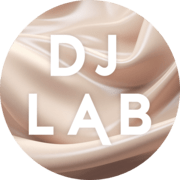
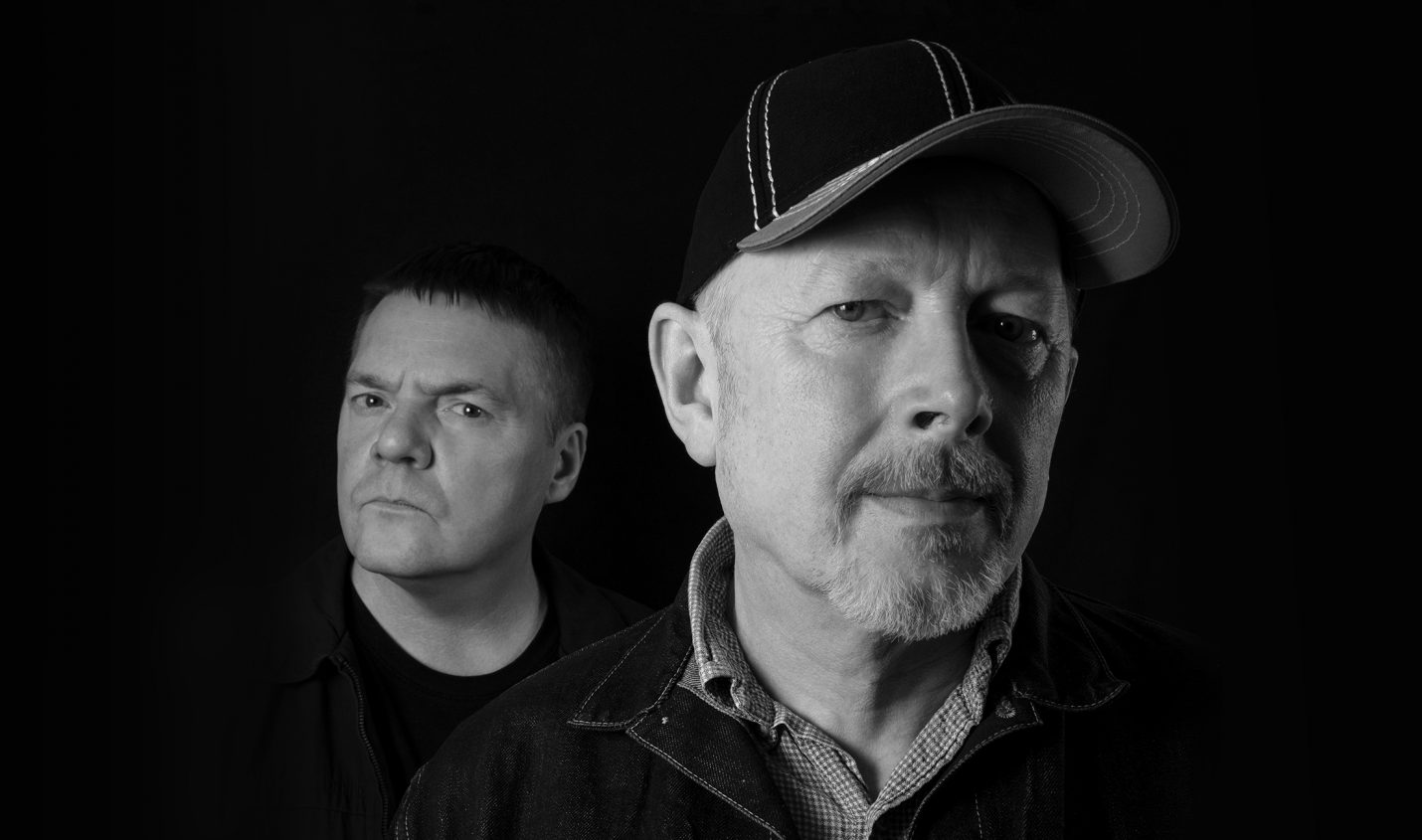
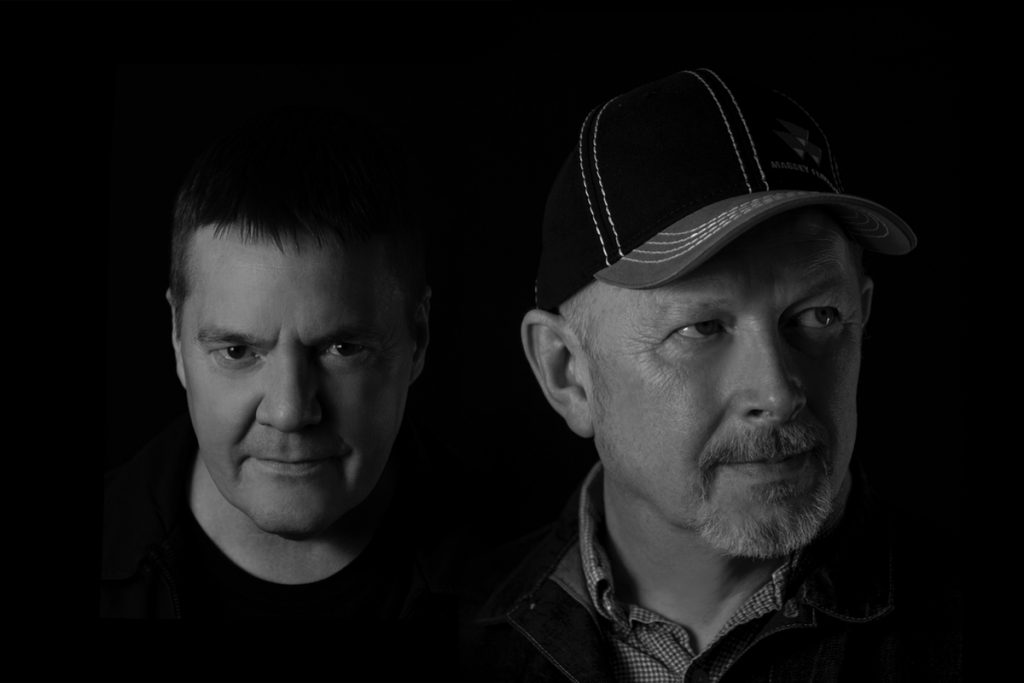

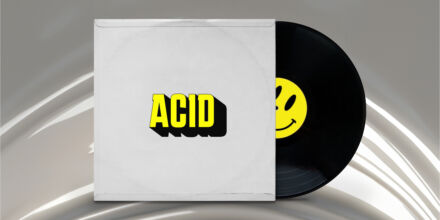
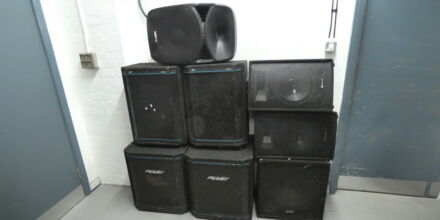
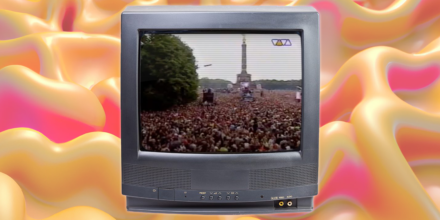
0 Kommentare zu "Interview: 808 State / über Lücken im Lebenslauf, Jazz und die TR-808"